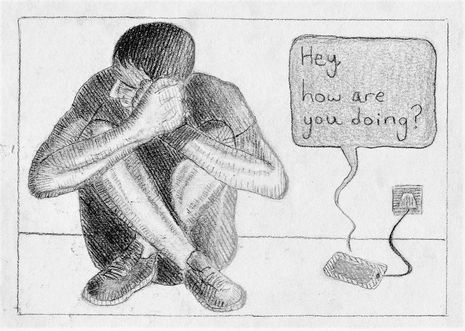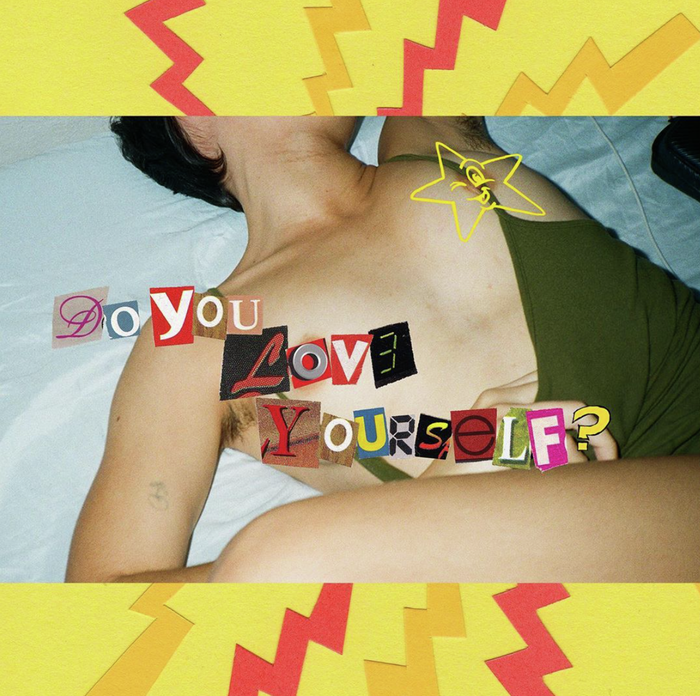Living with OCD during the coronavirus pandemic
Maria Woodford explores how the loss of normality has impacted those suffering from obsessive compulsive disorders

Content note: detailed discussion of mental health (ODC)
When somebody asks me to explain OCD, I tend to find myself flummoxed. To me, it is such a familiar sensation that I struggle to imagine what its absence must feel like. The closest I can come by way of analogy is to imagine it is a radio that you can’t turn off, and it only ends up getting louder and louder when you try to mess with the volume. Whatever it is you’ve seen or read, OCD is rarely just about the stereotypical hand washing or cleaning. These are very real compulsions and certainly shouldn’t be made light of, but they’re just one subset of a far more complex disorder.
“Somebody with OCD is unable to let these thoughts go. OCD is an illness.”
Compulsive behaviours (which vary from mental rituals, to repeated actions, to carefully planned avoidance tactics) are only the very tip of the iceberg. They are a way of alleviating continuous intrusive thoughts and images of a dark or disturbing nature. These thoughts are never a reflection of the person’s true beliefs. This is why we describe them as intrusions, and why they are so horribly distressing. Everyone experiences intrusive thoughts. At some point you’ve probably seen a hot stove and found yourself thinking ‘what would happen if I touched that?’ The difference between ordinary intrusive thoughts and OCD, is that somebody with OCD is unable to let these thoughts go. OCD is an illness. It often requires years of therapy and medications to bring it under control.
The coronavirus pandemic has seen a massive rise in calls to OCD helplines, both from pre-existing patients, and people first encountering the disorder. In isolation, we don’t have our everyday distractions. Seeing friends, playing sports, and even just wandering around the shops are simple pastimes - but they’re also important coping strategies. The world has moved indoors, and our familiar routines have disappeared. For people with any sort of mental health condition, a sense of normalcy is the key to coping. When this is removed, it opens a space for your thoughts to run riot.
“Too much alone time can begin to distort my thought patterns”
You might imagine that people with OCD are struggling purely with contamination fears, but the reality is far more complex. OCD sufferers tend to have particular themes that they get stuck on, so the climate of anxiety caused by the coronavirus might simply exacerbate pre-existing obsessions on non-virus-related topics. That said, a growing number of people are finding their thoughts turned towards the disease itself: ‘What if I gave it to my sister asymptomatically?’, ‘If I don’t do X properly, my partner will get ill.’ OCD will often try to convince you that you are to blame; I for one am certainly more concerned by the idea of giving the virus to someone I love than I am about contracting it myself.
When an illness is happening inside of your head, it feels intimately connected with all the bits that make you, you. It took me forever to realise the obvious: that just because I think it, it doesn’t mean it’s true. OCD thrives on uncertainty. ‘Is this a fact, or is it just a thought?’ is the question I try to ask myself. If you’re imagining a scenario beginning with ‘what if…’, try and remember that it’s easy to hypothesise a situation without it necessarily coming true. Our current circumstance leaves room for a lot of ‘what ifs’, it’s perfectly natural and reasonable to find this frightening.
“Staying in touch with friends and family is more than comforting – it’s fundamental”
During my most severe episode of OCD, I learnt that staying home can become a vicious cycle. When you’re struggling to fully function in social settings, the idea of simply staying in becomes increasingly attractive. It is only after a while that you realise that this is facilitating the problem. Spending more time alone with your thoughts, you become twice as anxious about going back out into the world which exists beyond them. I’m particularly conscious now of the fact that too much alone time can begin to distort my thought patterns. It’s an experience that I’m sure a lot of people are also encountering now for the first time. We’re feeling anxiety on a global scale, and even the healthiest minds among us are bound to be impacted. Staying in touch with friends and family is more than comforting – it’s fundamental. We’re pack animals and we thrive on one another’s company, particularly when we’re all struggling emotionally.
If someone you love is diagnosed with OCD, my advice would always be ‘ask before you assume.’ The thoughts and compulsions could take all sorts of forms, and it means a lot to know that somebody is willing to learn about what you’re experiencing. ‘Pure’ on Netflix is a beautiful, bittersweet drama about a young woman with one form of OCD. I thoroughly recommend you watch it if you want to visualise intrusive thoughts (or if you’ve simply run out of good TV to watch!) And to those of you living with OCD right now – please treat yourself with a little compassion. I know for a fact that you find that hard, but I promise you’re more resilient than you think.
 Comment / Plastic pubs: the problem with Cambridge alehouses 5 January 2026
Comment / Plastic pubs: the problem with Cambridge alehouses 5 January 2026 News / Cambridge businesses concerned infrastructure delays will hurt growth5 January 2026
News / Cambridge businesses concerned infrastructure delays will hurt growth5 January 2026 News / New movement ‘Cambridge is Chopped’ launched to fight against hate crime7 January 2026
News / New movement ‘Cambridge is Chopped’ launched to fight against hate crime7 January 2026 News / AstraZeneca sues for £32 million over faulty construction at Cambridge Campus31 December 2025
News / AstraZeneca sues for £32 million over faulty construction at Cambridge Campus31 December 2025 Interviews / You don’t need to peak at Cambridge, says Robin Harding31 December 2025
Interviews / You don’t need to peak at Cambridge, says Robin Harding31 December 2025










